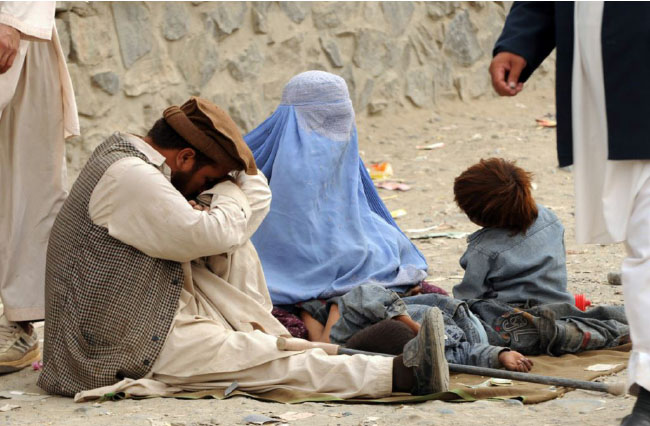World Food Day (WFD) is celebrated every year around the world on October 16 in honor of the date of the founding of the Food and Agriculture Organization (FAO) of the United Nations in 1945. This day is celebrated widely by many other organizations concerned with food security, including the World Food Program (WFP) and the International Fund for Agricultural Development. The theme for 2016 was “climate is changing, food and agriculture must too.” One of the biggest challenges to food security is climate change and its effects on agriculture. Many of the world’s farmers and fishermen are struggling to cope with increasing temperatures and weather-related disasters. The theme in 2017 focuses on “zero hunger”.
Agricultural growth; food security; fight against famine; encouragement of nations, heads of state, international centers, non-governmental organizations to increase production of crops are deemed the strategies to tackle poverty.
Conveying the experiences of developed countries to developing countries, nutrition, technology transfer and modernization of agriculture and economic growth, which improve the food industry in the Third World nations is one of the solutions stressed every year. On the other hand, rescuing nearly one billion people in the world, who are hungry, and increasing the number of those people due to serious economic constraints have worried international organizations more than ever before. According to statistics, one of seven people in the world suffer from hunger or malnutrition, most of them in Asian countries, especially in South Asia.
Afghanistan is one of the countries where the rate of poverty and number of hungry individuals are increasing to a great extent due to the country’s political and economic conditions. The continuation of war and insecurity, political turmoil and instability in the country, and the emergence of weak and unplanned governments were one of the main obstacles before Afghanistan’s agricultural development and economic growth. Annual reports from international organizations such as FAO and UNESCO suggest that Afghanistan is in a worrying situation in terms of food production and per capita consumption of food. The uncontrolled population growth, high rate of illiteracy and traditional culture, and dry and infertile lands in some parts of the country have seriously curtailed access to food.
On the other hand, Afghanistan has an arid climate due to its geographical location, which has tremendously restricted its food supply in the country. Traditional agriculture, farmers’ lack of access to agricultural pesticides, lack of access to improved seeds, lack of human resources in agriculture, and migration of villagers to cities to escape from famine and drought have increased the number of poor people in the country. Climate change and droughts, soil erosion, declining atmospheric rainfall, acid rain in some areas left Afghanistan more vulnerable to land degradation and destruction of Ozone layer than any other countries in the region.
The impact of the protracted war on economic condition of Afghan people, employment crisis, 4000 annual increase in labor force, and fear of rising unemployment rate have increased the crisis of hunger.
The International Food Policy Research Institute (IFPRI) which works in developing countries with the aim of reducing poverty and ending malnutrition and hunger has ranked Afghanistan first in number of having hungry individuals among Asian countries. The report states that Nepal ranked 72th, Myanmar 77, Sri Lanka 84, Bangladesh 88, India 97, Pakistan 106, and Afghanistan 107th in terms of nutrition and hunger. Considering the report of international organizations and the country’s worrying nutrition status, it is imperative that heads of states implement the right strategies for fighting hunger and increasing agricultural products. To alleviate hunger and reduce the number of hungry individuals, the government will be able to implement the plans applied in developed countries with fruitful results. Afghanistan, with the support of developed countries, will have to make coordinated efforts to reduce poverty.
In 21st century, as advancement in communication technology continues, there are still upsetting images of hunger in Afghanistan. Poor families even offered to auction their children for money so that they could escape starvation for a short time, which unveils the depth of tragedy in the country. Afghanistan is plunged into the devastating quagmire of poverty and hunger since people seek to survive starvation. This issue bespeaks of the fact that no high step has been taken in the country regarding food.
WFD is celebrated annually so that government officials ask themselves what they have done in terms of reducing poverty. Afghan political officials should know the protracted war has been the main reason behind poverty and hunger. They should further understand that there are many hungry and malnourished people to be supported. Hence, WFD is a good opportunity to empathize the poor and the hungry. This is the day of wakening conscience.
One can claim with strong confidence that there are hundreds of thousands of Afghan men, women, and children who sleep with empty stomach. Poverty does not only result in many sorts of disease but also in irreparable loss to peace and tranquility. So, only providing food will not mitigate the issue, but all causes of poverty should be figured out and eradicated.
Home » Opinion » WFD – Empathizing the Hungry and Awakening Conscience
WFD – Empathizing the Hungry and Awakening Conscience
| Jawad Sorosh

